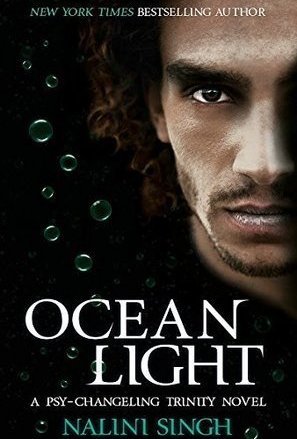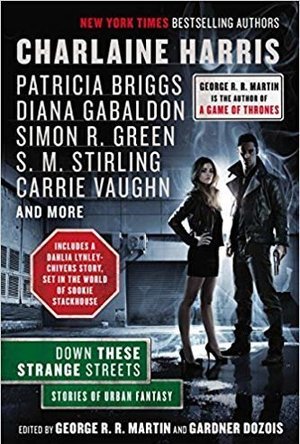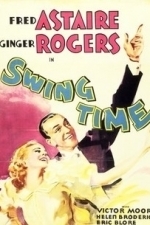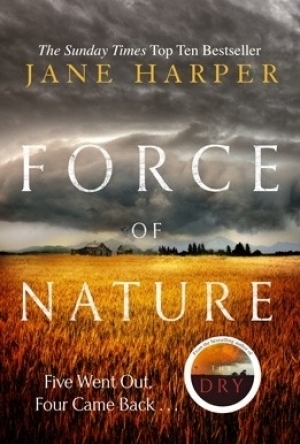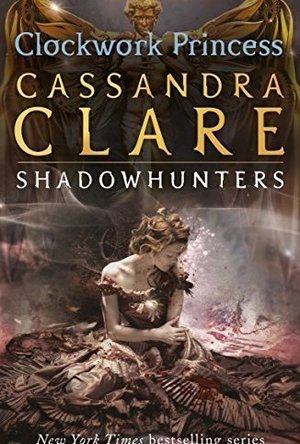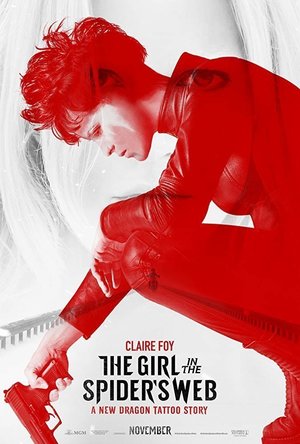Alice (12 KP) rated Ocean Light in Books
Jul 4, 2018 (Updated Jul 7, 2018)
It feels like I’ve been waiting for Ocean Light for 20 years, when in reality it’s probably only 5 or 6 but Ocean Light not only marks the second installment to the Psy-Changeling Trinity it marks a pretty huge milestone in the fantabulous world of the Psy-Changeling. I have one word: BlackSea.
The BlackSea Changelings have been that mystery group for a great many and finally, Ocean Light opens the doors to the black and Nalini Singh drops us in the deep end – figuratively speaking.
This book has my favourite human in it – Bowen Knight. He’s rough, he’s ready, he’s an alpha and he’s dying. Ocean Light is the story of Bowen’s recovery and his ultimate kick-assery of the things that go bump in the night.
After the previous shit-storm where Bowen is gravely injured, we see his rise through the blackness of despair and see him take on the chip that is currently destroying his brain like a boss.
Nothing will take him down. Especially not his own choices.
Our lovely lady of the book is Kaia Luna, a shy, mysterious cook with a scientific background and a really smart pet mouse.
Their growing relationship is beautiful from the outset and Bo brings the shyness out of Kaia really well. She becomes a woman to reckon with under the sweet ministrations of Bowen Knight and I implore you to fuck with her.
Nalini’s writing style is, as always, pretty perfect with nothing bad that I can say about it. She has a way with words and characters that are to die for, plots that I’ve never seen before her and probably never will again.
Ocean Light brings us – as readers – into the deepness that is the black and into the darkness that is The Vanishings. We’re introduced to characters we’ve seen before and to new characters and species that are quite frankly sometimes not what you expect – Bebe I’m looking at you.
Ocean Light has the traditional Psy-Changeling-Human interaction that signature with Nalini’s books and that is threaded throughout each book. We’re 17 books in to the story and I just know Nalini has more to give and there is more for us to learn.
The unique plot base of the Psy-Changeling universe is something that is ever growing and ever evolving with each book. If you’ve never read one of these books I suggest you do. Although you can start with Silver Silence the first in the Psy-Changeling Trinity series – as Nalini Singh gives you plenty of background into the previous history- I highly recommend that you start from the beginning with Slave to Sensation as you will get the full force and magnitude of what is happening in the series and you’ll get the full experience of Nalini Singh’s work.
One of my favourite characters from the preceding books – Kaleb Krychek reappears as the badass that he is in Ocean Light and what I love is that He still retains the badass around everyone but his Sahara. It’s beautiful.
I always give Nalini’s books 5 stars purely because they deserve it. There’s never anything I genuinely say I didn’t like and for a series with this many books that is saying something. Other long running series I’ve read I can lose interest in. Nalini Singh’s books I await with bated breath for the next release.

Star Chart
Education and Reference
App
*** Star Chart is now FREE! *** The top educational & augmented reality astronomy app - download...

Weather Widget+ Free
Weather and Utilities
App
*******Full Support for apple watch******* Weather Widget+ is the new generation of weather widget...
Cynthia Armistead (17 KP) rated Down These Strange Streets in Books
Mar 1, 2018
[a:Charlaine Harris|17061|Charlaine Harris|http://photo.goodreads.com/authors/1307925926p2/17061.jpg]'; "Death by Dahlia," set in the Sookie Stackhouse universe, is one of a series of stories about the vampire Dahlia Lynley-Chivers. Each story stands alone, but my enjoyment grows greater with each addition to her tales. I'd much rather see Dahlia as the main character of a novel than Sookie, to be honest. This story, set at the party for the ascension of a new vampire sherrif, was a little gem, and a nice start to the collection.
"The Bleeding Shadow" by [a:Joe R. Lansdale|58971|Joe R. Lansdale|http://photo.goodreads.com/authors/1200406474p2/58971.jpg] is grittier from start to finish, set in the south of black folks in the 1950s. A beautiful woman sends her sometime-suitor to find her brother, a blues musician who has gotten into music that isn't of this world. I couldn't be done with this one soon enough, as it gave me the willies. I have a feeling Lansdale would be happy that it stuck with me for a while.
[a:Simon R. Green|41942|Simon R. Green|http://photo.goodreads.com/authors/1224555729p2/41942.jpg]'s "Hungry Heart" takes us to the Nightside, where John Taylor is hired by a young witch to retrieve her stolen heart. I haven't read any of the Nightside novels, but this is probably the third or fourth short story I've read, and for some reason they never leave me wanting more. I don't hunger for the darkness, I guess. I will give Green points for creativity in evil henchmen, though.
"Styx and Stones" by [a:Steven Saylor|42919|Steven Saylor|http://photo.goodreads.com/authors/1243268148p2/42919.jpg] takes a teenage version of his novel hero Gordianus on a world tour to see the Seven Wonders of the World, and this stop is Babylon. Gordianus and his companion, Antipater, find a murderous ghost in residence near their inn in addition to seeing the Ziggurat, the Gate of Ishtar, and what's left of the Hanging Gardens.
[a:S. M. Stirling|6448047|S. M. Stirling|http://www.goodreads.com/assets/nophoto/nophoto-U-50x66.jpg]'s "Pain and Suffering" was unsatisfying to me. It opened with an ex-soldier's combat flashback twisted into something Other, then we learn that the ex-soldier is a cop. He and his partner spend a lot of time investigating an apparent arson and possibly-connected kidnapping. The flashbacks repeat. There's more, but I don't want to spoil the story. I just felt that there was a lot of build-up for very little payoff, and that perhaps this story was meant as a teaser for a novel in which context it would all make far more sense.
"It's Still the Same Old Story' by [a:Carrie Vaughn|8988|Carrie Vaughn|http://photo.goodreads.com/authors/1231952277p2/8988.jpg] features vampire Rick, from the Kitty Norville books. An old friend calls him needing his help, but by the time he gets to her, she's dead. Most of the story is told in flashback, with him remembering when he originally met the now-old-woman, when they were lovers for a time. The murder is no great mystery for very long. The story felt more rote than anything else, as if perhaps Vaughn wanted to humanize Rick a bit by showing that he had cared for this woman at one time. I didn't feel much of anything from it.
One of the more creative pieces, "The Lady is a Screamer" by [a:Conn Iggulden|119121|Conn Iggulden|http://photo.goodreads.com/authors/1235073163p2/119121.jpg], is told in first person by a con man turned ghostbuster. I didn't like it, precisely, and i certainly didn't like the narrator. It stands alone, though, and doesn't feel derivative at all, so that says something all by itself.
"Hellbender" by [a:Laurie R. King|6760|Laurie R. King|http://photo.goodreads.com/authors/1314242901p2/6760.jpg] is probably the only story that left me determined to hunt down more of the author's work. I would classify it as near-future science fiction, but it certainly fits in the noir detective genre as well. I have no hesitation giving this one story five out of five stars.
"Shadow Thieves" is a Garrett, P.I. story by [a:Glen Cook|13026|Glen Cook|http://photo.goodreads.com/authors/1207159752p2/13026.jpg]. That's another series I haven't read, but I believe this is the first time I've read a short story set in that world. I wouldn't mind reading the series if the novels are all light-hearted like this story. There was some darkness, obviously, or the piece wouldn't be in this anthology - but overall, there was humor.
[a:Melinda M. Snodgrass|725899|Melinda M. Snodgrass|http://photo.goodreads.com/authors/1271184595p2/725899.jpg]'; "No Mystery, No Miracle" is probably the most controversial story in the book if anybody is really paying attention. I found it intriguing and well-written.
"The Difference Between a Puzzle and a Mystery" by [a:M.L.N. Hanover|1868743|M.L.N. Hanover|http://www.goodreads.com/assets/nophoto/nophoto-M-50x66.jpg] takes us a big city, where an overworked cop is trying to get a confession out of a supposedly demon-possessed killer. He gets help from an unusual minister (Unitarian, we're told - not something that will thrill any UUs out there). I found this one of the most chilling stories in the book. Telling you why, however, would be a spoiler.
I would love to see a novel featuring the main characters of [a:Lisa Tuttle|38313|Lisa Tuttle|http://photo.goodreads.com/authors/1296860221p2/38313.jpg]'s "The Curious Affair of the Deodand" - a young woman in the Watson role and a young man as a Sherlock Holmes-type consulting detective. The young lady is every bit as vital to resolving the case as the man is, which is one of the things I enjoyed about the story. The resolution isn't as satisfying as it could be, though, which is one of the reasons I'd like to see the same characters in other circumstances.
"Lord John and the Plague of Zombies" by [a:Diana Gabaldon|3617|Diana Gabaldon|http://photo.goodreads.com/authors/1213918339p2/3617.jpg] is a Lord John Grey story. This is, I believe, the first thing I've read by Gabaldon. It wasn't bad and it wasn't earth-shakingly good. It was decently-plotted with predictable characters and a nice little twist at the end, so enjoyable to read. I won't avoid her work but I'm not burning to read more, either.
"Beware the Snake" is an SPQR story by [a:John Maddox Roberts|19522|John Maddox Roberts|http://photo.goodreads.com/authors/1285244765p2/19522.jpg]. Once again, I'm unfamiliar with the author and the series, but the story gave enough context for me to understand the setting and the characters, so that was all right. It was enjoyable, although I probably would have twigged to a couple of things more quickly were I more familiar with Roman naming customs.
[a:Patricia Briggs|40563|Patricia Briggs|http://photo.goodreads.com/authors/1228867484p2/40563.jpg]'; "In Red, With Pearls" is set in Mercedes Thompson's world but featuring werewolf Warren Smith and his lover Kyle. Kyle is set upon by a zombie assassin who is thwarted by Warren, but of course Warren wants to know who sent the zombie, why, and who made the zombie. It's a very good story, as I've come to expect from Briggs. I had a bit of a hard time keeping up with some of the secondary characters in the story, but then I was distracted at the time.
"The Adakian Eagle" by [a:Bradley Denton|198305|Bradley Denton|http://photo.goodreads.com/authors/1320697919p2/198305.jpg] is a Dashiell Hammett story - as in, Hammett is a character. That was interesting alone, but the story in general was well-told. Spare and hard, as befits one of the main characters.
All in all this is a collection that I can definitely recommend. There are very few clunkers are several excellent stories. [a:George R.R. Martin|346732|George R.R. Martin|http://photo.goodreads.com/authors/1195658637p2/346732.jpg] and [a:Gardner R. Dozois|12052|Gardner R. Dozois|http://photo.goodreads.com/authors/1247758142p2/12052.jpg] did their jobs very well.
Phillip McSween (751 KP) rated Swing Time (1936) in Movies
Aug 14, 2020
Acting: 10
Beginning: 6
In the beginning John’s dance troupe tries to distract him by keeping him from getting married. They feel like if he doesn’t go through with it, he can keep working with them. Despite their efforts, it was much more annoying than it was funny. Not a great way to kick off the story.
Characters: 10
Cinematography/Visuals: 8
For the most part, the movie is cinematically gorgeous. I loved the dance numbers, well most of them anyway. It all reverts back to that damn blackface scene. It was an unnecessary piece of the film that did absolutely nothing for the story. Other than that, the movie is shot in a gorgeous fashion.
Conflict: 10
Most of the conflict stems from John’s rising feelings for Penelope the dance instructor (Ginger Rogers). You get the sense that they are meant to be together but John is working towards trying to be with another woman. You hope before the story’s end that he ends up in the right place. It’s a journey getting there.
Entertainment Value: 8
Memorability: 10
Pace: 10
Plot: 2
The premise and the way it unfolds is a miss for me. Fortunately the characters and setpieces were enough to carry the movie. it was a really hard buy-in for me.
Resolution: 10
While not perfect, the ending is a satisfying completion to the story. You can definitely see it coming the closer you get, but it’s still good. Great closure for the main characters.
Overall: 84
Not my favorite of the classics, Swing Time still deserves its place in history. As far as the blackface is concerned, I think we owe it to ourselves not to shy away from things that happened in history. Even the bad things. In spite being on the wrong side of history, I enjoyed it.

iSmartDetect | Metal Detecting
Utilities and Navigation
App
iSmartDetect is the ultimate metal detector app designed to support metal detectorists and amateur...
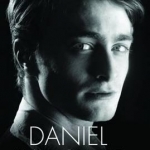
Daniel Radcliffe: The Biography
Book
Daniel Radcliffe went from shy schoolboy to the world's most famous boy wizard overnight. Aged just...
Kristy H (1252 KP) rated Force of Nature (Aaron Falk #2) in Books
Mar 2, 2018
I absolutely adored Jane Harper's first Aaron Falk novel, The Dry, and was really excited to see Aaron back again. He's a wonderful, complex character. Indeed, all the characters in THE DRY were so intricate and deep. Here, I was definitely sucked into the world Harper created again. I won't lie, beyond Aaron, most of the characters in FORCE OF NATURE are not easy to like. The five women who head off on this retreat are often despicable, whiny, and just plain mean. But, as the novel continues, we learn more about their motives and what drives them to act as they do. They may still be, well, despicable and mean, but there's a reason for it. There is no unformed character in a Jane Harper novel. Each comes with a backstory and a reason for every action.
It's nearly impossible not to get sucked into this book. The chapters alternate between the present, from Aaron's point of view as he tries to unravel things, and then flip to the near-past, slowly ticking down the events of the women at the retreat. The result is a nearly unbearable suspense at times, where I found myself wanting to scream, "What happened to Alice?!!" It's a slow, tense, fascinating build as we watch things fall apart for the group--getting lost in the deep woods--and seeing events unfold from there. We also see Aaron figuring out his own chain of events. The format works quite persuasively. Even better is that we get Aaron and Carmen's financial investigation thrown in as well. It adds a nuanced layer to the plot and the overall apprehension.
Overall, I really enjoyed this one. The characters are complex, and I really liked how their intricate personal lives intertwined. I'm not sure I loved this one quite as much as THE DRY, but part of that is because you can never quite replicate the joy and surprise of discovering a new, talented author again. Nonetheless, this is a great thriller that keeps you guessing with its nuanced characters. I certainly hope Aaron will be back for a third book.
Kyera (8 KP) rated Clockwork Princess (The Infernal Devices, #3) in Books
Jan 31, 2018
Will continues to be my favourite focus of any scene with his witty comments and sense of humour. It was nice to see him play off his sister at times, because normally only Tessa can manage Will. Although they have been apart for many years they still have a wonderfully authentic relationship, like how easily she is able to get under his skin. Will and Jem’s parabatai relationship, as it was in the previous books, is so real that you can easily imagine the love they have for one another, the pain each feels when the other is hurt, and how they would do anything for each other.
It was nice to see the continued development of characters that we’ve grown to love, as well as the new faces that have joined the familiar at the Institute. The number of important characters does not ever feel overwhelming or confusing, as each has been given the time to become established and grow in the world that Cassandra Clare has created. I love each and every one of the characters because they are not only true but integral to the story as a whole.
Despite having read this entire series before and knowing what will happen – it is still so brilliantly written that it elicits myriad emotions throughout. Each character feels real and their lives affect your own. A tear slips down my face as one character experiences unbearable pain, while another comes at the thought of losing a character I’ve grown to love so much. A grin overtakes my face in light of the overwhelmingly happy news. The books that I have grown to love are the ones that speak to you, change you, and will forever stay with you.
Clockwork Princess is quite possibly the best series finale that I have read and certainly the best final book in a trilogy. Despite the book causing me to cry, multiple times, I never felt dissatisfied with the conclusion. The story comes to a climactic end, then Cassandra Clare takes the final chapter to pull everything together and the prologue to make me cry again. I loved re-reading this series so much and hope that you are inspired to read it as well.
Darren (1599 KP) rated The Girl in the Spider's Web (2018) in Movies
Oct 2, 2019
Performances – Claire Foy does feel mis-cast in this role, she doesn’t seem to have a tough enough look to make this character effect as the two previous stars. Sverrir Gudnason had large shoes to fill and he doesn’t do a strong enough job in the Mikael role, while Sylvia Hoeks does what she can with her role without being anything overly special, while LaKeith Stanfield doesn’t seem to feel like the character he is meant to be playing.
Story – The story here is the fourth story in the Dragon Tattoo world, the second in English and is the first not written by the original author. We follow Lisbeth who once again finds herself needing to take on secret organisation that what something that could put the world in danger and this time it becomes more personal, with her sister being the enemy. This story does feel like it has borrowed from many other films and while it still puts Lisbeth is an anti-hero role, we only seem to find ourselves in one direction where Lisbeth is always one step ahead of everything happening, despite the fact we get to see just how twisted the Spiders are, it paints one image of them only to leave us facing a different softer enemy.
Action/Crime – The action was pretty much all given away in the trailer, we have the motorbike chase across the ice, the car chases and shoot outs, each feels very similar and doesn’t have the suspense required in a thriller.
Settings – The film does try to bring everything back to Lisbeth’s backstory with the settings showing the off the grid life she current lives compared to the one she could have lived, the snowy roads add a little to the chases, but not that much overall.
Scene of the Movie – Ice lake escape.
That Moment That Annoyed Me – The Spider’s not hinting at wanting to do to what they did to the guy without a nose, to the new Lisbeth group.
Final Thoughts – This does feel like a cash grab on a franchise that has never taken off on the American side of things, we get everything scaled back leaving us feeling disappointed by the end of the film.
Overall: No thrills to be seen here.
